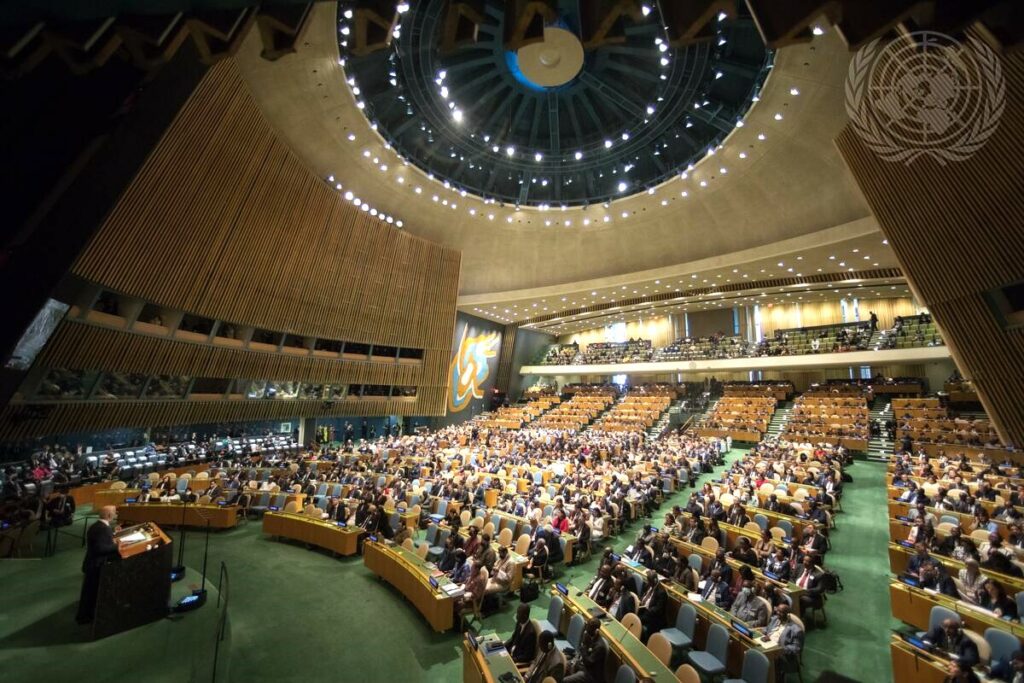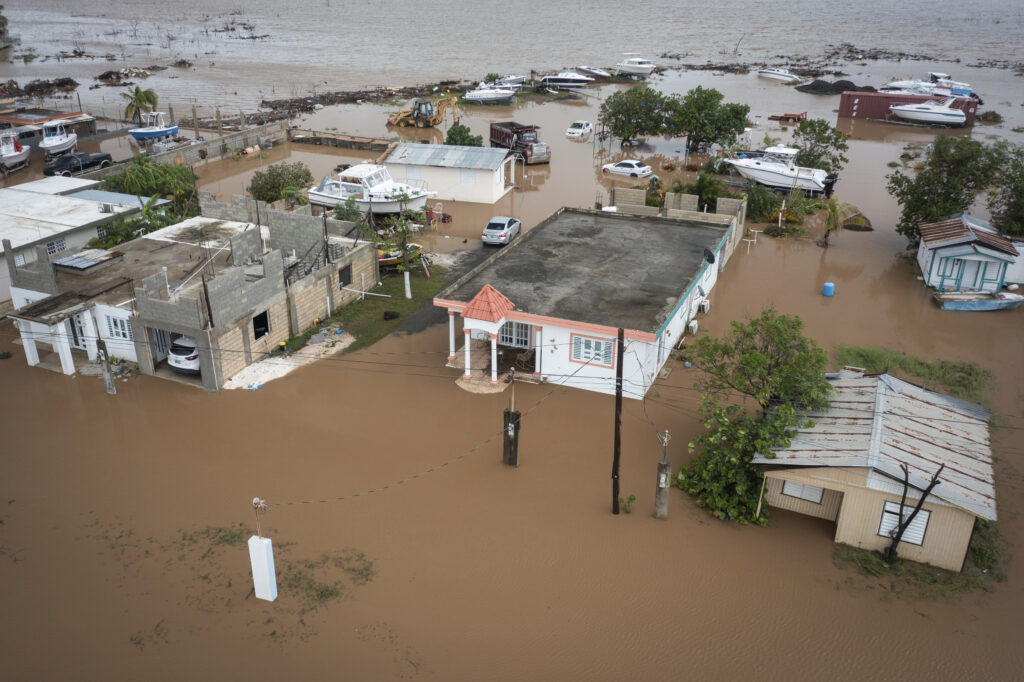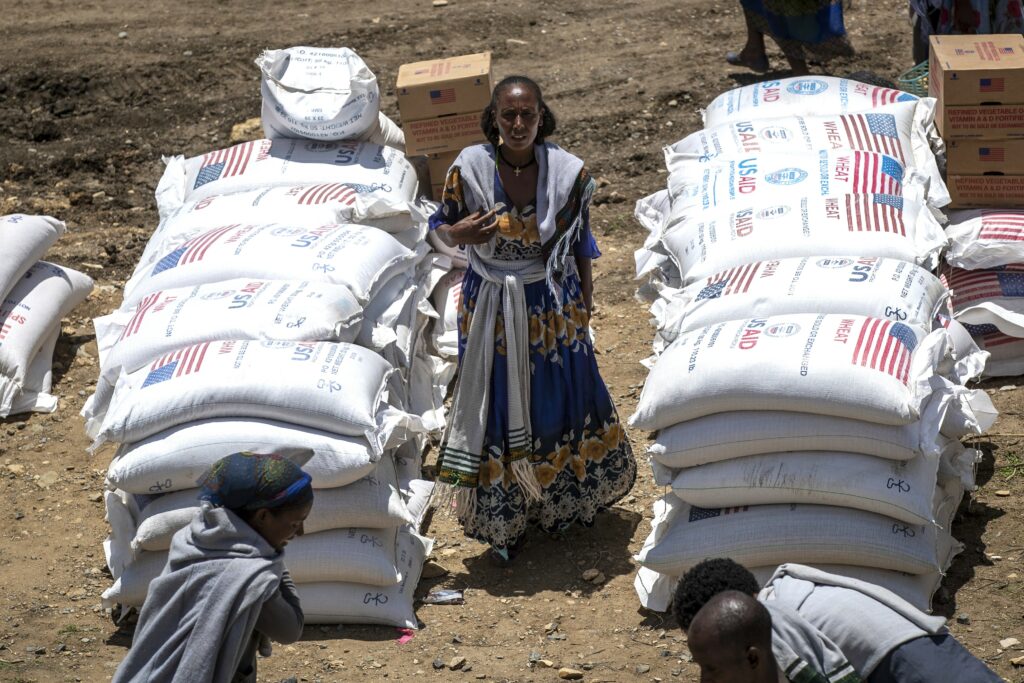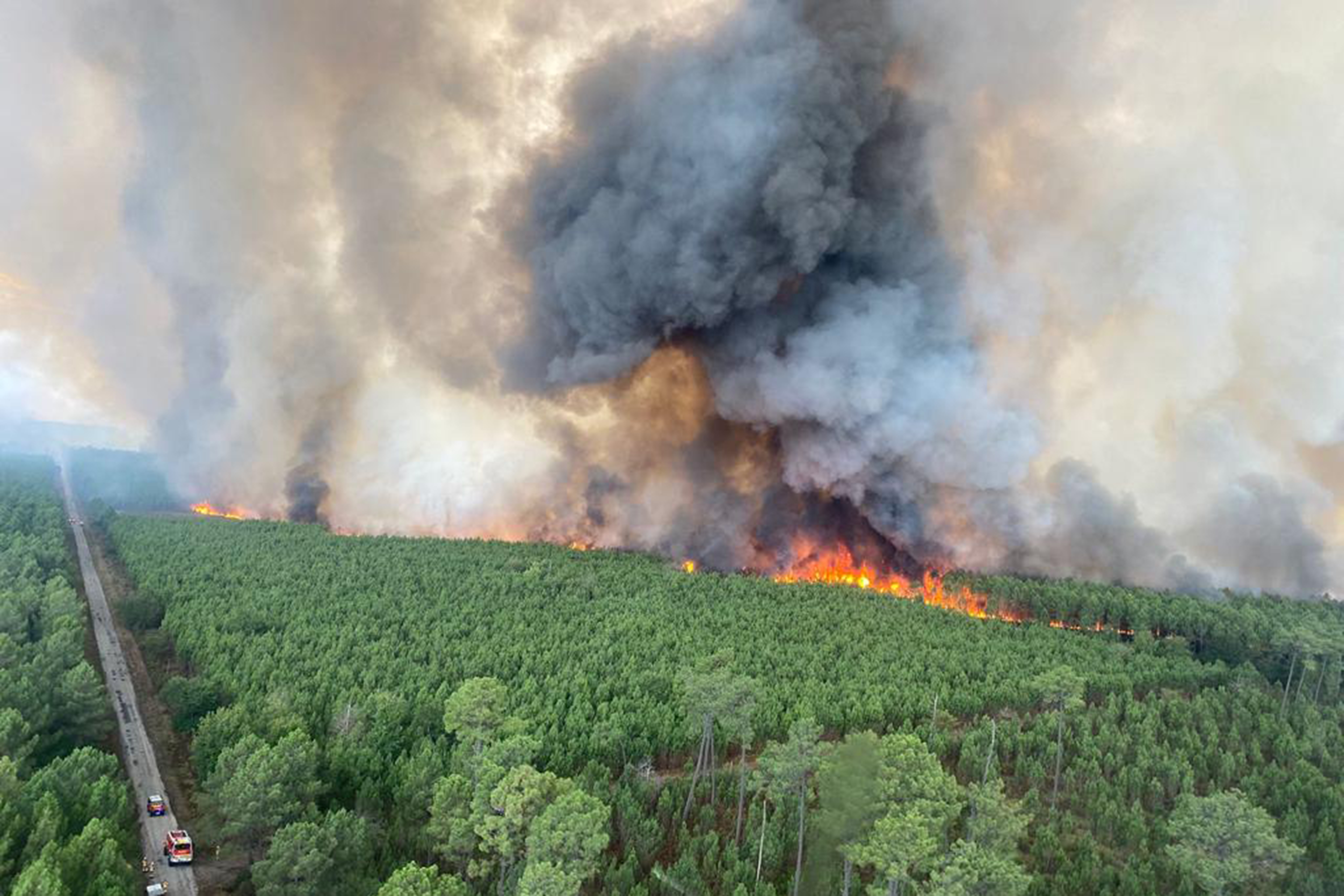World leaders met at the 77th Session of the United Nations General Assembly in New York City to address the most pressing global problems. The General Assembly recently convened and was the largest gathering of leaders in three years since the COVID-19 pandemic paused in-person events and travel worldwide.
But amidst conflicts in Europe, Asia, Africa, and the Middle East—pestilence, famine, extreme weather, and economic woes around the globe—the leaders were handed a bleak state of the world address by the head of the world body.
“Our world is in big trouble,” said António Guterres, secretary general of the United Nations. “Divides are growing deeper, inequalities are growing wider, challenges are spreading farther,” he said. The General Assembly was held Sept. 20-26.

Mr. Guterres painted the grim picture on Sept. 20, opening the days-long General Assembly. He diagnosed the worldwide crisis as perilous and advised leaders to urgently overcome divisions and act together to reverse it. “Our world is in peril—and paralyzed,” he stressed. He urged Member States to, “work as one, as a coalition of the world, as united nations.”
But the appeal to leaders is one made at every yearly gathering and to varying degrees throughout the year. While political leaders debate and convene at global bodies like the 77-year-old UN and other smaller nation blocs, the world continues descending into further disarray. World leaders also spoke on the deterioration of the global landscape and issued calls to action.
“This year, we come again, and the battles continue. Indeed, they have been enhanced,” Barbados Prime Minister Mia Motely told the Assembly. Just over the course of 2022 with the Russia-Ukraine war collateral consequences to ordinary people all over the globe was felt, she stated.
“With respect to inflation … scarcity of supply of goods … access to food, continues regrettably, to be the environment within which we live,” said Ms. Motely. “I had hoped that we would have seen improvement. But I’m now convinced more than ever, that there comes a time when we must heed a certain call … to make that definable difference,” she said.
Cuba’s Minister of Foreign Affairs, Bruno Rodríguez Parrilla, unequivocally stated: “We cannot continue,” as things are. “The impact of the COVID-19 pandemic has laid bare, as never before, the true essence of the prevailing unjust and unsustainable international order,” said Mr. Rodriguez Parilla.
“Never has humanity had this formidable scientific-technical potential, nor this extraordinary capacity for generating wealth and well-being, and yet never before has the world been so unequal and inequality so profound,” he said.

Consider that 828 million people suffer from hunger, nearly 50 million children suffer from wasting—the deadliest form of malnutrition. Unemployment will affect 207 million people in 2022, 21 million more than in 2019. In the midst of the fourth industrial revolution, 773 million human beings are illiterate, Mr. Rodriguez Padilla pointed out.
The Cuban diplomat reminded the Assembly that near 6.5 million people died due to COVID-19. While treatments to cope with it are inaccessible to one billion people in low-income countries, pharmaceutical transnationals earned over $84.5 billion in 2021.
“International relations,” Mr. Rodriguez Parilla said, “are on a very dangerous path,” citing U.S. policy aimed at subjugating countries by economic, military, and political-diplomatic threat and coercion to an order based on unjust capricious rules.
Some question whether the UN is relevant or is it a failed entity.
“There’s not an easy answer to that,” said Bill Fletcher Jr., past president of TransAfrica Forum.
“Because you have to understand what the UN was organized to do, and by whom, and if you don’t get that, then it just seems like in some ways, insanity,” he said.
The United Nations was founded on the idea to maintain international peace and security. It was a response to the Allied powers in World War II and the failure of its predecessor, the League of Nations. The founders aimed to give a special role to the “so-called victorious” powers of World War II, namely America, the Soviet Union, Britain, China, and, France, although defeated in the war, explained Mr. Fletcher.
They wanted to reorganize the world to prevent another world war. But wanted to assure the dominant powers coming out of World War II held the power of veto, which is the problem that hamstrings the UN to this day, say analysts.
“This, of course, has placed a strain, even a bitter strain on the United Nations as a functioning international body,” said Abayomi Azikiwe, political commentator and editor of Pan African Newswire.
The majority of UN member-states are now from Africa, the Asia-Pacific, the Caribbean, Central and South America, he pointed out. The General Assembly is not a global legislative body but mainly an advisory body and the Security Council makes the decisions. An arrangement many countries object to and are calling to be reformed, says observers.
The entire format of the UN is “problematic,” “undemocratic” and needs to be “re-founded,” argues Mr. Fletcher. But the difficulty is the Security Council members accepting any change resulting in loss of influence.
Whether the UN is a failure, Mr. Fletcher added, depends on who you ask. “If you’re basically saying, is it a failure because it hasn’t been able to prevent war? Yes,” Mr. Fletcher said. “But at the same time, it has produced many humanitarian projects that have been very helpful around the world,” he reasoned.

Another point that must be considered is the UN is not a global government and was never intended to be by the founding countries. “Now, do we need a global government? I would actually say yes,” said Mr. Fletcher.
In remarks on Sept. 21, President Joe Biden spoke into worsening military tensions engulfing the world. Although America is the largest arms purveyor worldwide and the number one military power, he called on the leaders to strengthen commitments to the nuclear non-proliferation agreements, through diplomacy.
“No matter what else is happening in the world, the United States is ready to pursue critical arms control measures. A nuclear war cannot be won and must never be fought,” said Mr. Biden.
He called out what he termed “disturbing trends” from Russia, China, and North Korea.
Russia is making irresponsible threats to use nuclear weapons and China is conducting unprecedented nuclear buildup without any transparency, he said.
Despite efforts to begin serious and sustained diplomacy, the Democratic People’s Republic of Korea continues to blatantly violate UN sanctions, Mr. Biden charged. For Iran, Mr. Biden repeated the U.S. mantra: “We will not allow Iran to acquire a nuclear weapon.”
The UN addressing crises whether political, economic, social, or religious, “At this point, there’s only so much the United Nations can do,” said Mr. Azikiwe. He argues the UN could have done more to prevent the raging war in Ukraine, citing Mr. Guterres going to Moscow and Kyiv well after the war started.
“I think the UN could have been much more proactive … it’s too dominated by Western economic and political interests and that’s going to hamper its capacity to prevent wars and other social calamity,” said Mr. Azikiwe.
The UN does have relevance, said Mauri Saalakhan of the Aafia Siddique Foundation, a Muslim human rights group. “But the relevance is restricted to the area of conscience. Beyond that, it has no teeth at all,” said Mr. Saalakhan. He explained while the leaders can meet and raise the concern of global issues at the General Assembly, the UN lacks enforcement power.
“There have been so many resolutions passed against the apartheid state of Israel. But nothing has been done with those resolutions,” Mr. Saalakhan said. He told The Final Call change will depend on the response of the people in the global community beyond governments, multinational businesses, the military industrial complexes of America, Russia, China, and other nations creating so much havoc.
“It’s going to depend on the people to exert the kind of pressure on their respective governments … in order for anything to change,” he stated.
Dissatisfaction is driving people into the streets in several capitals in an intensifying cry for justice and change. The confusion of leaders to solve the perplexing troubles can be understood in the context of a universal change being directed by God, warned the Honorable Minister Louis Farrakhan of the Nation of Islam.
“Tyrants of the world have to be sat down and a government from God has to be established so that the suffering of humanity will end,” Minister Farrakhan tweeted in January 2017.
The Minister’s remarks are one of many the Muslim leader has given over decades of cautioning and warning world leaders about the dire consequences of their decisions. For 91-years collectively, Minister Farrakhan and his teacher the Most Honorable Elijah Muhammad warned that a “Universal Government of Peace” is being established to eradicate the burden of corruption, injustice, inequality, and wicked rule on the planet.
Since the inception of the UN, wars have permeated the earth. The 20th century was a century of war—the worst ever fought in the annals of human history. Now, the second decade of the 21st century, the UN is discussing averting World War III and the onslaught of devastating calamities. However, all the speeches, pledges and “Sustainable Development Goals” amount to lip service and a world still dangerously close to nuclear conflict. They speak peace, amid eruption on various levels, but cannot achieve it.
“We do not hope for peace as long as we add to the war that which serves as fuel to a fire,” wrote the Most Honorable Elijah Muhammad in His inciteful book “Our Saviour has Arrived.”
“The fire cannot go out as long as we keep it burning by adding more fuel. A dying, burning fire is increased when more fuel is thrown into it,” he wrote.
Ongoing conflicts have brought the world’s nations to the brink of World War III, also known as the dreaded war of Armageddon in the scriptures.
Minister Farrakhan, a voice of divine warning and guidance like his teacher, cautioned the UN years ago that the “window of opportunity” to avert this war is “very narrow.” He called the leadership of the nations of the Earth to Atonement, Reconciliation and Responsibility in order to try and avert the impending doom this final conflict would bring to humanity.













